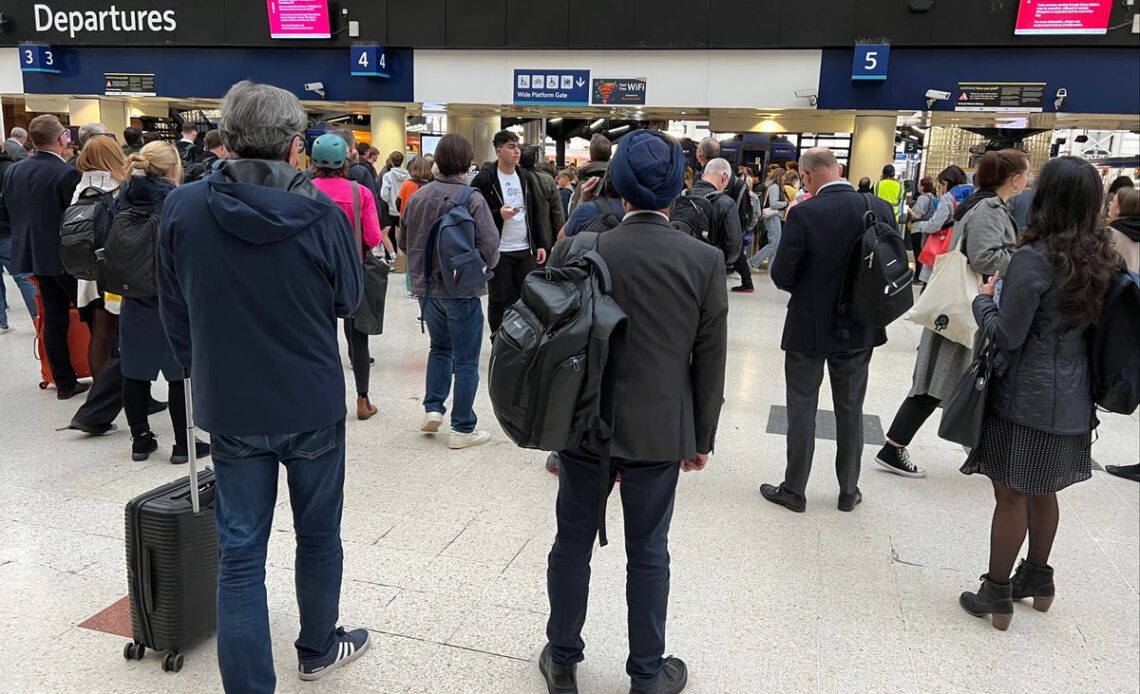Rail passengers in Britain are enduring the longest and most damaging series of strikes since the 1980s.
Industrial action by rail workers has been taking place since June and seems to be intensifying. October was the hardest-hit month so far. Industrial action is continuing into November.
Great Britain-wide rail strikes or more localised stoppages took place almost every day during the first 10 days of October, with millions of potential journeys disrupted; and the industrial action continues for a number of train operators.
The strife is top of the agenda for the new transport secretary, with three fresh walk-outs planned by RMT members across England, Wales and Scotland for early November. The rail employers – represented by Network Rail and the Rail Delivery Group – says: “Passengers should expect a week-long disruption due to further industrial action.”
What is the rail dispute about?
There are actually dozens of individual disputes involving many employers:
- Network Rail – the infrastructure provider, running the tracks, signalling and some large stations
- More than a dozen train operators, who are contracted by the Department for Transport (DfT) to run a specified schedule of services.
Four unions are involved:
- RMT, the main rail union
- Aslef, representing train drivers
- Transport Salaried Staffs’ Association (TSSA), the union for white-collar staff in the transport industry
- Unite, representing some grades in some train operators
But key elements are common to all the disputes:
- Pay, which the unions say should take into account the current high inflation
- Jobs, and in particular the prospect of compulsory redundancies
- Working conditions – with the unions determined to extract a premium from any productivity improvements
Another element has now crept in: an accusation of duplicity against the employers.
The RMT general secretary, Mick Lynch, said the behaviour of Network Rail bosses triggered the latest strike call: “On the one hand they were telling our negotiators that they were prepared to do a deal, while planning to torpedo negotiations by imposing unacceptable changes to our members terms and conditions.
“Our members are livid with these duplicitous tactics, and they will now respond in kind with sustained strike action.”
Network Rail flatly rejects these assertions and describes the forthcoming strikes as causing…
Click Here to Read the Full Original Article at The Independent Travel…
